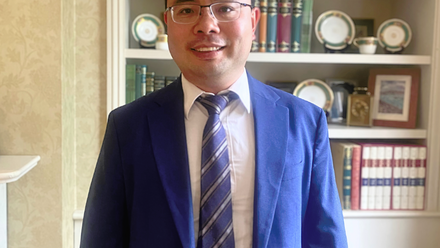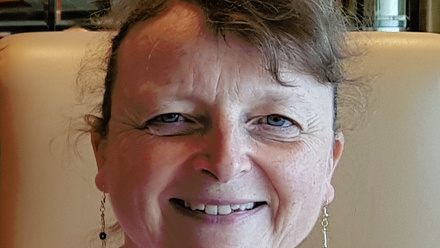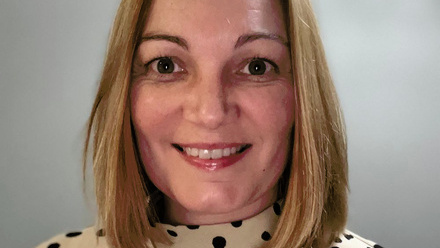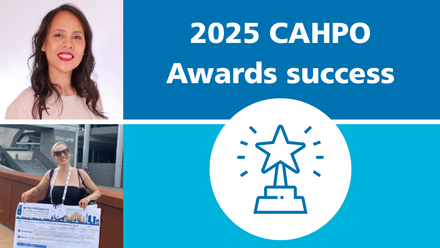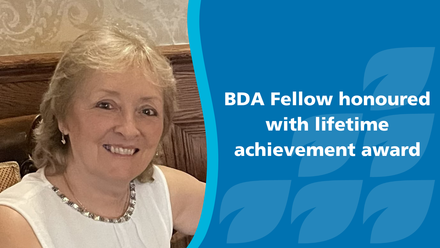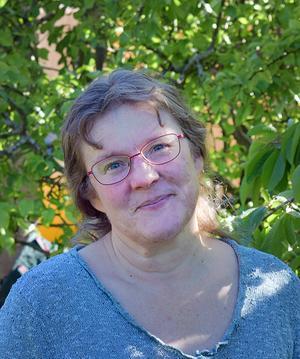
Alison Smith is a Prescribing Support Consultant Dietitian at Herts Valleys Clinical Commissioning Group, Chair of the Advisory Committee on Borderline Substances, and committee member of Older People Specialist Group and Optimising Nutrition Prescribing Specialist Group.
Alison received a Fellowship in 2021. We asked her what it means to receive the honour, why she became a dietitian and her advice for future dietitians.
What does it mean to you to have been awarded a BDA Fellowship?
It was a real surprise and it means a lot to me. It means recognition and validation by my peers that what I have been trying to achieve for the last 20+ years and what I continue to try to achieve is recognised as important and is valued by our profession. I also feel it’s proof that you don’t need to have the most outstanding academic qualifications to actively lead our profession and be known for doing so.
What drove you to become a dietitian in the first place and be where you are today?
I think it’s important to make it clear that I really wasn’t driven to become a dietitian! I actually wanted to be a vet but it rapidly became clear to me that I wasn’t going to do anywhere near well enough at A-levels to do that. So Dietetics, as a post-graduate diploma, was simply a pragmatic choice based on my love of food and my degree in Physiology/Pharmacology & Nutrition not equipping me to do any particular job.
Where I am today is as a result of finding my passion for nutrition in older adults over 20 years ago, together with realising that things can be done differently to drive up patient care. This then combined with recognising the importance of being part of bigger initiatives to ensure representation by our profession, to make a proactive and lasting contribution to healthcare for older adults across the UK and to positively influence our profession into the bargain.
Who would you say inspires you both dietetically but also non-dietetically?
Dietetically I have to say my committee colleagues on the BDA Older People Specialist Group and Optimising Nutrition Prescribing Specialist Group – I think we all continue to inspire, challenge and massively support each other and I have been fortunate enough to experience this since first joining the then NAGE committee in 2003. The power of our collective expertise and experience can drive real change in our profession.
Non-dietetically it would definitely be my manager of the last eight years, a pharmacist who I chose to follow from my first Medicines Optimisation role in Buckinghamshire when she moved to become head of medicines optimisation in Hertfordshire. She positively challenges and supports me with all that I do both locally and nationally and I aspire to be a manager of her calibre.
Also without a doubt my husband, who turned a massive negative (significant mental health issues) into a huge positive (becoming an active mental health advocate for his workplace) which I find truly inspiring. He also hugely supports me with all the things I take on, even when from time to time he does need to quietly point out that perhaps I’m taking on a bit too much!
What advice would you give to future dietitians?
Always have professional curiosity, be careful about just accepting things at face value. It’s okay to question why things are done a certain way – it may be the way things have been done for some time but that doesn’t mean it is the only way or indeed the best way, because the best way to do things evolves and it needs to evolve based on continually improved understanding. Don’t be afraid to interrogate the evidence, where it has come from and the motivations behind publishing it. You never stop learning – there is always more to know and always more to do.
What has been the highlight of your dietetic career to date?
Becoming the first dietitian to be chair of ACBS. At interview I made it very clear that what I wanted to achieve in the role was real change to a historical system that does not work for either clinicians or the NHS and thankfully that chimed with what the Department of Health and Social Care (DHSC) were looking to achieve too.
What we as a committee have been able to achieve during my first three years in post is not inconsiderable, especially when you take into account that we are all voluntary. The opportunity this role presents – of being able to directly influence the nutritional accuracy, relevance and usefulness of nationally recognised prescribing resources (with the full support of DHSC) is invaluable, as is being able to showcase why dietitians who understand prescribing are central to enabling the provision of simpler information about and therefore improving understanding of the role of prescribed nutritional products.
Find out more about the BDA Fellowship, and how you can nominate a colleague here.


